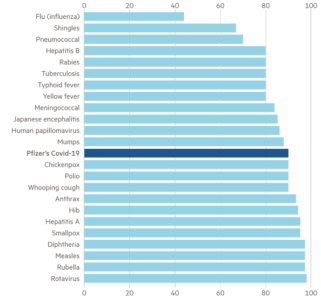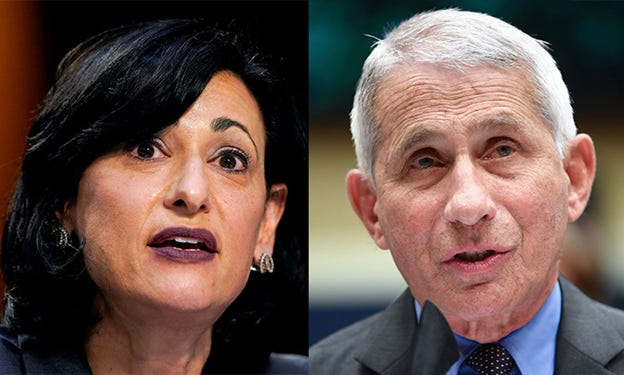.
CDC: Problematic Vaccine? No, Problematic Definition of Vaccine.

technofog.substack.com
Interesting to see the true motivations behind this change.
Oftentimes the vaccine failure in patients are caused by the lack of an immune response. I guess since not everyone will form an immune response their definition is still wrong, if you use the same reasoning they used, which lets keep in mind was adopted from a bunch of anti-vaxxer conspiracy theorists. People highly regarded for their reasoning skills (sarcasm).
The CDC, or at least these employees seem to have thought the antivaxxers had a legitimate point. I would argue they did not, but these emails appear to be between communications department staff, not medical professionals or scientists. But this seems to be another example of the CDC doing ridiculous things to protect the perception of the vaccine or their public health policies.
We’re talking about two different scenarios. With the flu, you have a vaccine that was designed a year in advance predicting the 3-4 most likely strains. If it’s not effective in preventing illness, it’s more than likely because the virus has mutated. But that’s not really the failure of the vaccine itself, it’s the failure to design the right one. Obviously the future cannot be reliably predicted and ineffective flu vaccines are to be expected.
It’s another scenario to have a vaccine for a virus that works very well and the stops working despite the virus having not changed to any significant degree.
The reality some vaccines lose efficacy with time (which is actually the case with the flu vaccine, it’s effects just happen to last long enough to get through most of the flu season, same with tetanus, etc)- COVID vaccine included. So rather admit the shortcoming of the COVID vaccines (as all pharmaceutical do) and say the acquired immunity from the COVID vaccine diminishes with time, they instead try to change the definition of a vaccine to essentially say vaccines don’t have the intention of providing protection / preventing disease.
Similarly, rather than say disease prevention is decreased because COVID has mutated and the vaccine is no longer or the optimal design for the given variant, they say vaccines weren’t supposed to provide protection to begin with.
Then why did the FDA indicate the vaccines “for prevention of” COVID-19 and why did the FDA base their vaccines efficacy primarily off of prevention of COVID?
Rather than providing the public education to explain why vaccines don’t always work and how they can still be helpful if you catch the disease, they fight the criticism by changing definitions to something incredibly vague? As if that’s going to be more convincing.
These emails suggest these CDC employees thought the antivaxxers had a legitimate claim. The subtext is
Let me make an analogy. Antipsychotics are “a type of psychiatric medication which are available on prescription to treat psychosis”. I can give a patient an antipsychotic, but it doesn’t mean it’s going to work aka they receive treatment. In fact, 10-15% of psychotic people won’t ever respond to antipsychotics from day zero, but up to 50% stop responding long term. Does that mean we need to change the definition? How about “a psychiatric medicine often prescribed to patients diagnosed with psychosis”? Perfect!
The definition of a pharmaceutical class is based on what the intention of what the product is ideally supposed to do, not be worded to encompass situations where it does not work. As we’ve established nothing is 100% effective. But the entire basis of vaccines lies on the idea of immunity, including partial immunity, and preventing disease. That’s why COVID , Flu, MMR, etc vaccines are technically classified as prophylactic vaccines and are legally considered preventative healthcare.
As I mentioned, this is really just an academic debate as it has no bearing on clinical practice or research or regulations. As I mentioned earlier, so don’t love their old definition, but the new one is terrible. My concern however is that this type of reactionary, political (not so much L/R politics but rather throwing the weight of the govt around) nonsense and wordplay only encourages distrust of the health authorities and clinical healthcare industry. The irony is, the more they try to control public perceptions through aggressive and flagrant actions, the worse they and the policies they support are perceived.

 www.axios.com
www.axios.com





